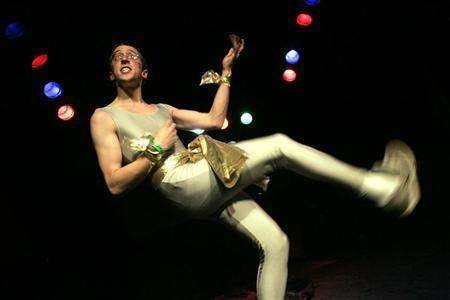Reuters
Nov 23, 2007
Dicey politics casts doubt over Pakistani economy
Reuters
Nov 23, 2007
By Robert Birsel
KARACHI (Reuters) - Pakistan's spiral into emergency rule after months of political upheaval has cast doubt over how fast policies are being implemented and deterred investors from committing long-term funds into its fast-growing economy.

President Pervez Musharraf's November 3 declaration of emergency rule followed 10 months of rising tension and militant violence, and the outlook remains cloudy for a country struggling to throw off the image of an unstable, nuclear-armed haven for al Qaeda.
"From March to today, most of the the country has been bogged down in the judicial crisis and then the political crisis," said Majyd Aziz, a prominent Karachi businessman who was until recently president of the Karachi Chamber of Commerce.
"It impacted very negatively on policies that were imperative," Aziz said.
Army chief Musharraf, struggling against a groundswell of opposition since March, when he tried to dismiss a chief justice seen as hostile to his bid for another term, cited danger to the economy after he suspended the constitution, rounded up opponents and curbed the media.
But independent economist Asad Saeed said the political woes and growing threat of militancy had raised questions about the sustainability of not only the economy but the state itself.
While speculative short-term investment in stocks, real estate and commodities was largely unaffected, the government's action against the judiciary boded ill for attracting quality investment from people who expected some level of rule of law and a transparent forum for resolving disputes, he said.
While there were no figures, he said he had anecdotal evidence that investment was being hit.
"I know people in the pharmaceutical sector who have frozen their investment decisions. Others in the hotel sector have started going slow. That sort of thing is happening."
ACCESS TO CAPITAL
Sakib Sherani, chief economist at ABN Amro in Karachi, said political uncertainty slowed economic activity.
"I think that's certainly the case here ... Investment decisions get put on hold and generally people are waiting to see how this plays out," he said.
Musharraf has promised to become a civilian president and parliamentary elections are set for January 8.
But more instability looms, with the prospect of two former prime ministers, Benazir Bhutto and Nawaz Sharif, slugging it out with Musharraf for control.
"This is not an environment conducive for the kind of investments that were in the pipeline, projects that banks were discussing just a few months ago," Sherani said.
It was also becoming difficult to access capital in the international markets or from export credit agencies. Political risk insurance had gone up, he said.
"It's a question of actually gaining access to specialised capital ... It's certainly become very problematic since November 3." The government has put off a plan to sell part of its stake in National Bank of Pakistan through global depositary receipts (GDRs) because of the political uncertainty but aims to go to the market by March.
Moody's Investors Service and Standard & Poor's downgraded Pakistan's debt outlook to negative from stable because of the emergency.
There was a net foreign portfolio outflow of $192.96 million (93.7 million pounds) in the first 18 days of November, according to the central bank, while the rupee hit a three-year low last week.
But the stock market, hurt by the emergency, is now only 2.7 percent down since then and is still up 34.9 percent this year.
Sherani forecast economic growth in the fiscal year to next June of 6-6.5 percent, lower than a government forecast of 7.2 percent, but that was partly because it was an election year.
"That itself is disruptive for momentum, both at the business level, but equally important at the policy level," he said.
The exasperated director of a textile company said she was battling to shore up the flagging confidence of foreign buyers worried about shipments, particularly in the United States.
"We have people waving magazines in our faces saying 'Pakistan's the most dangerous nation'," she said, referring to a recent description on the cover of Newsweek. "We don't know what to expect but we're trying to be optimistic."
© Thomson Reuters 2024 All rights reserved.

























